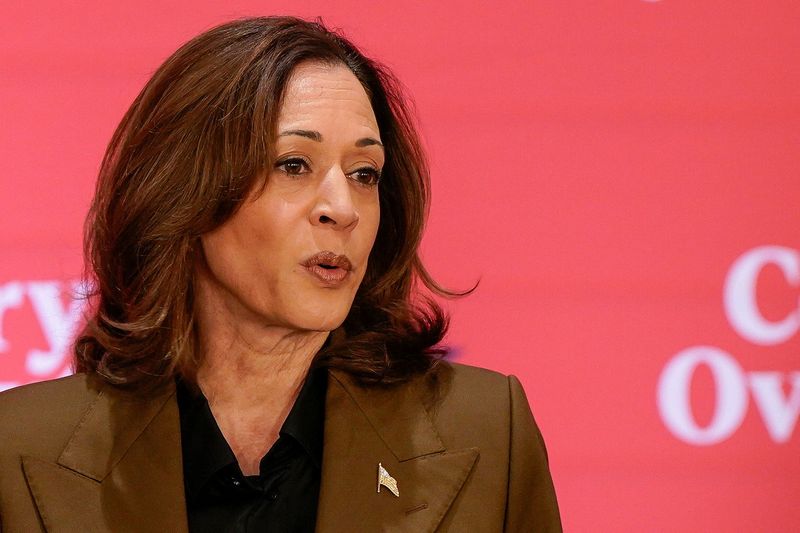Vice President Kamala Harris, a Democratic contender in the upcoming presidential election, recently outlined her commitment to fostering bipartisanship in governance. Speaking at an event in Scottsdale, Arizona, she announced her intention to establish a bipartisan council of advisors aimed at providing constructive feedback on her policy initiatives if she wins the election on November 5. Harris emphasized her desire to incorporate diverse perspectives into her decision-making process, stating, “I don’t want any ‘Yes’ people. I want people to come in … and kick the tires on ideas.” This approach underscores her strategy to balance differing viewpoints within her administration, aimed at enhancing the effectiveness of her policies.
Harris’s campaign is focusing on key battleground states, with recent trips to Nevada and Arizona showcasing her outreach efforts. During her travels, she engaged with various groups and participated in significant events, including a town hall hosted by Univision in Las Vegas and a meeting with the Culinary Workers Union Local 226, demonstrating her commitment to addressing the concerns of different voter demographics. Her interactions, especially in these pivotal states, are crucial as they could significantly influence voter sentiment and outcomes in the election.
The emphasis on bipartisanship presents a strategic angle for Harris, especially given the current political climate marked by polarization. By proposing to include a Republican in her Cabinet, she signals her intent to collaborate across party lines effectively. This move aims to appeal to moderate voters and those disenchanted with party politics while reinforcing her stance as a leader who values diverse opinions and collaborative governance. Her approach seeks to build a coalition that transcends conventional political boundaries, potentially broadening her support base.
Polls indicate that Harris is in a tight race with her Republican opponent, Donald Trump, with a recent Reuters/Ipsos survey showing her leading him by only three percentage points—46% to 43%. This narrow margin highlights the competitiveness of the election and the importance of strategic moves such as Harris’s bipartisan initiatives. As both candidates ramp up their campaigns, the positioning of Harris as a candidate who is willing to engage with Republicans may provide her with a crucial edge in the battleground states that are vital for electoral success.
The significance of Arizona and Nevada as battleground states cannot be overlooked in this electoral context. Both states have gained prominence in recent elections for their unpredictable voting patterns and increasing importance in determining the overall electoral outcome. Harris’s campaign efforts in these areas illustrate her understanding of the states’ strategic value, and her initiatives may resonate well with voters seeking pragmatic and inclusive leadership during a time of political divisiveness.
In summary, Vice President Kamala Harris’s announcement of a bipartisan council and her commitment to including Republican voices in her Cabinet reflect a calculated strategy designed to appeal to a diverse electorate in the forthcoming election. Her active campaigning in key battleground states, along with her focus on collaboration and constructive criticism, positions her as a candidate aiming to transcend partisanship. As the election approaches, her efforts to cultivate a broad coalition and engage with various voter groups will be essential in determining her electoral success against Donald Trump in a closely contested race.

